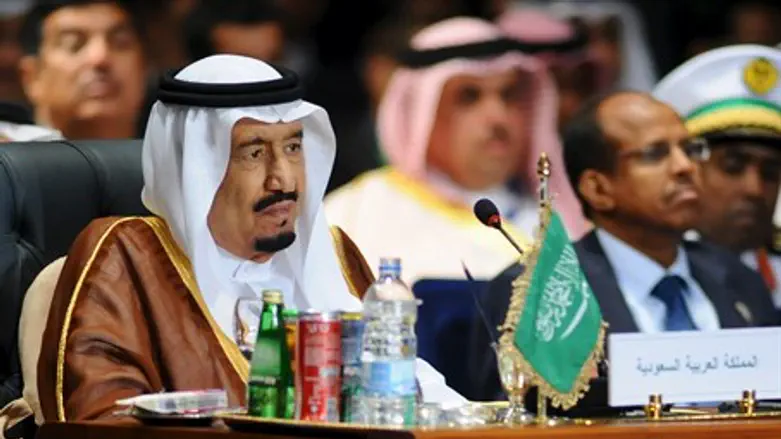
Most members of the Saudi Arabian public believe that Iran - not Israel - is their true foe, The Associated Press (AP) reported on Thursday.
That conclusion was reached by an Israeli college that conducted an opinion poll in Saudi Arabia. The poll, by the Interdisciplinary Center in Herzliya (IDC), found that the Saudi public is far more concerned about the threats of Iran and the Islamic State group than Israel.
It also concluded that the vast majority of Saudis support a decade-old peace offer to the Jewish state.
The poll, according to AP, found that 53 percent of Saudis named Iran as their main adversary, while 22 percent said it is the Islamic State group and only 18 percent said Israel.
The poll, conducted in conjunction with the University of Wisconsin-Milwaukee, surveyed 506 Saudis over the phone and had a margin of error of 5 percentage points. It was carried out over the past two weeks, starting in late May.
The poll also found that a majority of Saudis think their country should seek nuclear weapons if Iran acquires an atomic bomb. A whopping 85 percent also support the Saudi-led Arab Peace Initiative, which calls for peace with Israel in return for a full Israeli withdrawal to the pre-1967 borders.
The results of the poll are interesting given the shared concerns by both Gulf states and Israel over the impending nuclear deal with Iran.
Saudi Arabia is one among several Arab governments that have repeatedly expressed their concern about the terms of a potential nuclear deal, warning that a final agreement could allow Iran to keep the technologies needed to produce nuclear weapons.
Saudi Arabia’s former Foreign Minister recently said that Iran should not be given “deals it does not deserve”.
The concern in Saudi Arabia over the deal is so great that a columnist in a Saudi-controlled government newspaper recently expressed support for Israeli Prime Minister Binyamin Netanyahu’s warnings against a deal with Iran.
"What we think here in Israel about the Saudis is not exactly what they are," Alex Mintz, who heads the IDC's Institute for Policy and Strategy and oversaw the survey, told AP. "There is a great identity of interests and threats and agendas ... some would even like to join forces with Israel."
The questioners told respondents that they worked for the IDC, though they did not say they or the school were Israeli, noted the report. Mintz said few people questioned the source of the survey, and those who did raise questions did not make the connection to Israel. He said there were no unpleasant exchanges.
The institute, which last year carried out similar surveys of Iranians and Gazans, said it relied on information gathered from the Saudi Arabian directory and bureau of statistics to proportionally sample 13 regions of the country based on their populations. It said Arabic-speaking Israelis called a mixture of mobile phones and landlines and encountered a 22 percent response rate.
Saudi Arabia was the driving force behind the 2002 Arab Peace Initiative, offering Israel a comprehensive peace with dozens of Arab and Muslim countries in exchange for a withdrawal from all the areas it liberated in the 1967 Six Day War and the establishment of an independent Palestinian state.
Netanyahu has said the initiative might be a starting point for discussions but that it is unacceptable as a take-it-or-leave-it offer.
Iran, for its part, has continuously accused Saudi Arabia of working with Israel to sabotage its nuclear program.

